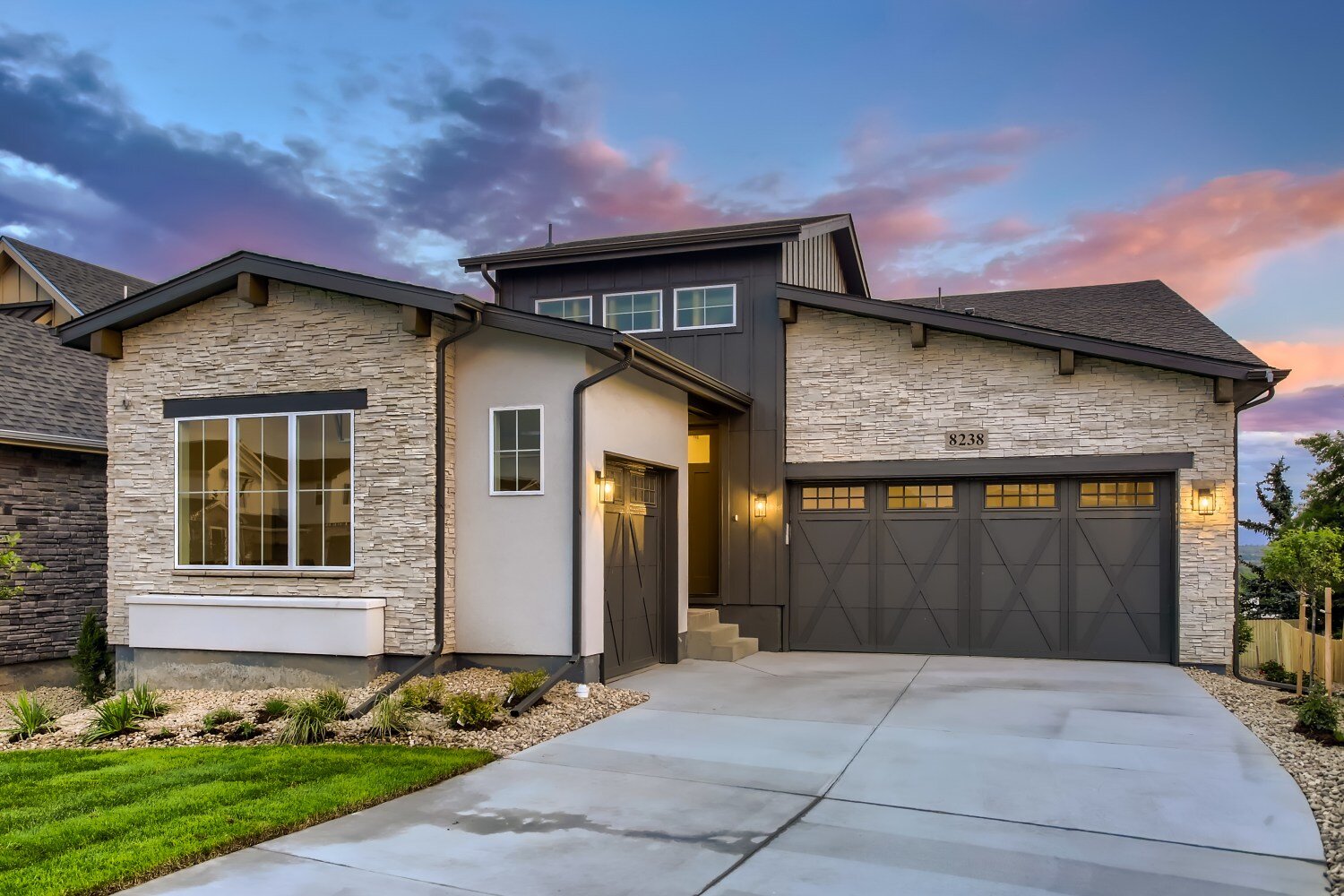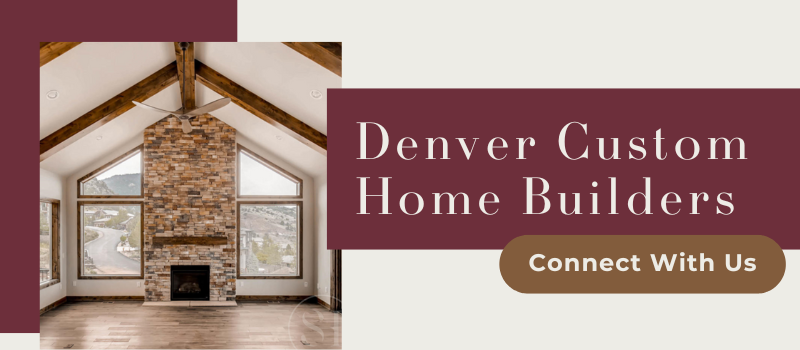Cost of Land in Colorado for Custom Home Building

Colorado’s breathtaking mountain scenery, abundant sunshine, and vibrant outdoor lifestyle continue to draw new residents from across the country. One of the most common questions that follows: How much does land cost in Colorado?
This guide explores current land price ranges, how location and zoning influence costs, and the essential factors to consider when purchasing land for a new home in the state.
Current Price Ranges for Land in Colorado
What are the current price ranges for land suitable for custom home building? The average cost of land in Colorado varies greatly depending on region, views, proximity to the Front Range, and infrastructure. Given the area's high demand, land prices are correspondingly elevated. Let's start by examining the major metropolitan area.
Land for Sale in Denver
In the city, small infill lots typically range from $250,000 to over $1M, with higher prices driven by zoning flexibility and ready access to utilities. Moving further out into areas like Arvada, Lakewood, and Parker, you can expect to pay between $350,000 and $800,000 or more, depending on factors like lot size, topography, views, and neighborhood amenities.
In areas further from Denver, like Castle Rock, Berthoud, and Erie, prices range from $200,000 to over $3M, especially for larger parcels offering natural scenery, open space, or acreage suitable for estate-style custom homes.
How Much Does 1 Acre of Land Cost in Colorado?
In metro suburbs, land typically costs between $250,000 and $750,000 or more per acre, depending on proximity to city centers and available infrastructure. Premium lots with scenic views or elevated privacy can command $500,000 to over $ 1.5M per acre in foothill or mountain-adjacent communities.
Meanwhile, rural areas offer far more affordability, with prices ranging from $5,000 to $50,000 per acre, though these often come with additional expenses for bringing in utilities, building access roads, and preparing the site for construction.
How Do Location and Zoning Impact Land Costs in Colorado?
While zoning and location might not be the most exciting aspects of buying land, they play a critical role in determining cost. Understanding these factors upfront helps ensure you're making informed decisions and avoiding unexpected expenses.
Location-Based Factors
Location-specific factors heavily influence land prices in Colorado. Properties located closer to Denver’s employment hubs and city centers tend to cost significantly more due to high demand and convenience. Top-rated school districts, nearby parks, and access to outdoor amenities like hiking and biking trails also increase a lot’s value, making family-friendly neighborhoods especially desirable.
Zoning-Based Factors
Zoning determines what you can do with the land. It also affects price and build readiness. Let's examine the different types of zones and how they impact what you pay.
-
Rural Residential (RR): Often requires septic systems and well water.
-
Planned Urban Development (PUD): May allow streamlined custom building, but often includes HOA guidelines.
-
Agricultural (AG): Lower cost, but you may need rezoning before building a home.
Factors to Consider
What factors should be considered when evaluating a piece of land for a custom home? Buying land for a custom home is exciting, but also a big decision. Before you fall in love with a lot, it’s worth taking a closer look at what’s beneath the surface, both literally and figuratively.
From soil stability and utility access to permitting challenges, several critical factors can significantly impact your ability to build. Keep these considerations in mind as you assess whether a particular parcel is genuinely suitable for your future home.
Topography and Soil
Sloped land adds cost for excavation and foundation work. Always conduct a soil test before purchase. When you work with a talented, experienced builder, you'll be able to rest in the knowledge that your team is paying attention to the topography and the soil on your lot.
Utility Access
That gorgeous, rural piece of land? It may not have utilities set up. Hooking them up takes time and money. Confirm availability of:
- Sewer or septic
- Electric/gas
- Well or city water
- Internet or fiber
Depending on distance and terrain, bringing utilities to raw land can cost $30,000 to $100,000+. You should also include this in your budget for land and total home building costs.
Environmental Restrictions
Check for floodplains, fire zones, protected land, or easements. These could delay or restrict your build plans. If you find land that seems like a particularly good deal, ensure there's no reason for that.
Permitting Timeline
City and county processes vary. Some municipalities may approve and issue permits within 60 days of application; others may take six months or more. While your builder will typically manage the paperwork, the permitting process can sometimes extend beyond expectations.
Steps to Buying Land and Building a House in Colorado
Building a home on your own land is a multi-phase process. Understanding what comes next after the purchase—and what the entire journey involves—can help you prepare with confidence. Here's how to begin.
1. Get Pre-Approved for a Land or Construction Loan
Can you get a loan to buy land and build a house? Absolutely, yes, you can. Common options include land loans and construction-to-permanent loans.
Securing financing before pursuing a land purchase is essential—without it, the process can become unnecessarily delayed. Land can be a strong investment, especially in uncertain markets, so it’s important to move forward with clarity and confidence in your decision.
2. Find the Right Lot
Searching terms like "land to build a house" or "land for home building" will help you identify active listings. Work with a builder early to assess site potential. The ideal lot has a variety of elements that make it right for you. Don't settle, even in a tough market.
3. Evaluate the Land
You'll want to evaluate the land, but that's not a DIY activity. You should bring in experts to:
-
Review zoning
-
Survey property lines
-
Estimate site prep costs
4. Close on the Land
After completing your due diligence and securing financing, the next step is closing—officially making you the landowner. While this stage may appear straightforward, it's a critical milestone in the land-buying process and should only proceed once you've carefully evaluated the cost of building on your own lot in Denver.
5. Design and Build Your Home
At this stage, you'll collaborate with a design-build firm like our team at Sheffield Homes to develop your plans and initiate construction. Site-specific factors can influence design options, so it's essential to work with a builder who has the expertise to adapt plans to the unique characteristics of your lot. If you work with our team, you can even check out what it will cost to build a custom home in a community.
Should You Buy Land and Build Later?
Wondering if you should buy now and build later? The answer depends on your goals. Buying land now allows you to:
-
Lock in pricing in growing areas
-
Secure your ideal location
-
Begin the design process on your own timeline
Be sure to verify that your lot isn’t subject to deadlines or restrictions imposed by an HOA or zoning agreement. If you find a property that meets your criteria and offers strong value, there’s no reason not to move forward with your investment. For those who prefer to secure land now and plan thoughtfully, explore our wide range of floor plan options to get started.
Your Local Custom Home Builder
At Sheffield Homes, we’ve been building custom homes across Colorado for over 45 years. From the moment you reach out, our process walks you from start to finish, from finding the right lot to designing your home to managing construction and everything in between. Whether you’re building on your own land or one of our lots, we help you make smart decisions every step of the way.
Our portfolio includes a range of architectural styles, all built with quality, care, and attention to detail. When you build with Sheffield, you gain a dedicated partner from the very beginning. Explore answers to commonly asked questions about custom home building, or reach out to us directly for personalized guidance.
Contact Us
Ready to buy land or build a custom home? Contact us for a consultation.
/Sheffield_Logo_Horizontal_Reversed.png)



